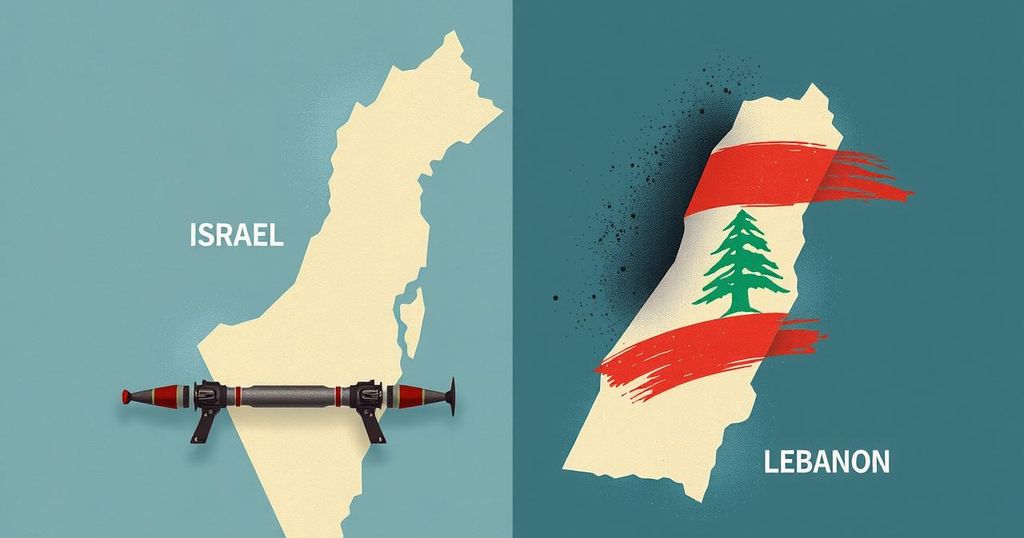Recent rocket launches from Lebanon have exacerbated tensions between Israel and Hezbollah, threatening an already fragile ceasefire established after the last war. Israel’s response has included airstrikes in Beirut, highlighting uncertainties around the ceasefire terms. While Hezbollah has denied involvement, analysts believe the group still plays a critical role in the ongoing conflict.
The ceasefire between Israel and Hezbollah, which has been tenuous, faced further jeopardy after rockets were fired from Lebanon into northern Israel, prompting Israeli airstrikes in Beirut. This incident marked the second rocket launch within a week, with Hezbollah denying involvement in both. Israeli military actions have been persistent in southern Lebanon; however, it was the first time airstrikes targeted the Lebanese capital since the ceasefire deal, mediated by the U.S. and France, commenced after the last Israel-Hezbollah war.
The ceasefire originated after Hezbollah’s rocket attacks on October 8, 2023, which followed Hamas’s assault on Israel. This triggered a low-level conflict that escalated into an all-out war by September 2024, resulting in significant casualties in Lebanon. The peace agreement required forces from both sides to vacate the southern region, while a strengthened Lebanese army and U.N. peacekeepers would maintain order. Nonetheless, both parties retained the right to self-defense, creating ambiguity around the ceasefire’s enforcement.
Despite the cessation of major combat, tensions have persisted. Israel has conducted ongoing airstrikes, claiming to target Hezbollah’s military assets to hinder their rearmament. The deadline for Israeli withdrawal was extended to February 18, leading to violent protests when the initial timeline was ignored. Currently, Israeli forces remain at strategic positions, while Lebanon calls for complete withdrawal. The U.N. peacekeeping force reported numerous incidents across the border, indicating heightened activity from the Israeli side.
The identity of the those responsible for the recent rocket launches remains uncertain, with Hezbollah disavowing involvement and attributing the actions to Palestinian factions. Analysts suggest Hezbollah’s influence remains significant in southern Lebanon, indicating that it likely had knowledge of the launches. This complexity raises concerns about the continuing validity of the ceasefire agreement.
In light of these developments, Israeli officials have signaled a willingness to respond aggressively to any perceived threats. Prime Minister Netanyahu emphasized Israel’s commitment to protect its communities against attacks, while stating that hostility in northern Israel impacts stability in Lebanon. Observers note that despite the pressure Hezbollah faces, its capacity for sustained warfare appears diminished. However, continued aggressive Israeli actions risk destabilizing the fragile ceasefire over time.
The recent rocket fire from Lebanon and the ensuing Israeli airstrikes underscore the precariousness of the ceasefire between Israel and Hezbollah. Although both parties have entered a treaty aimed at curtailing conflict, the ongoing airstrikes and ambiguous self-defense clauses contribute to heightened tensions. Analysts suggest that without careful management, further hostilities could emerge, undermining the ceasefire and jeopardizing regional stability.
Original Source: www.wsls.com




